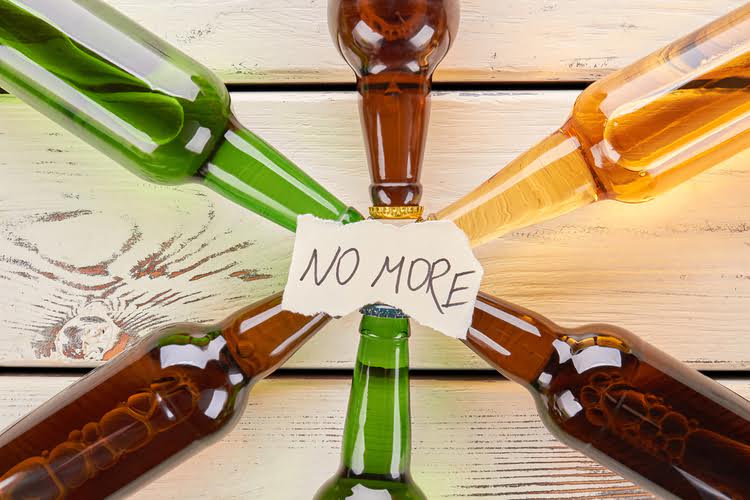How to Rebuild Your Life: Strategies for Long-Term Recovery
Thus, relative to TAU, TMC produced a highly favorable negative incremental cost-effectiveness ratio (-$1,400 per abstinent year). Most who find recovery also find that they have emotionally damaged friends and loved ones and have many regrets about their past decisions. To avoid relapse and stay sober, it’s important that you take the necessary steps to learn from your past mistakes and begin to live life more responsibly. In 2010, SAMHSA rolled out Recovery Supports as one of its Strategic Initiatives, highlighting the importance of recovery as a valuable component in the continuum of care. Directly following the establishment of the Recovery Support Strategic Initiative, SAMHSA developed a five-year technical assistance contract to support recovery, known as BRSS-TACS (Bringing Recovery Supports to Scale – Technical Assistance Center Strategy). For people with addictions to drugs like stimulants or cannabis, no medications are currently available to assist in treatment, so treatment consists of behavioral therapies.

Why are relapse prevention skills important?
- Because setbacks are a natural part of life, resilience becomes a key component of recovery.
- Through her writing on AddictionHelp.com, she reaches a broader audience, offering practical insights into health and recovery.
- The U.S. Food and Drug Administration (FDA) has approved several medications for AUD and opiate use disorder.
- Be proactive with mental health concerns and seek help at the first signs of distress.
- Hogue’s HEAL-funded research aims to create tools for providers, youth, and their families to find lasting recovery by targeting three concrete principles.
If you find it difficult to make new, sober friends, try joining a support group. Spending more time with supportive loved ones and planning activities for the entire family can also help you develop a healthier lifestyle and avoid situations in which you would normally drink or use drugs. The process of change often starts at an addiction treatment facility, such as a residential program for 30 to 90 days, and can offer a good foundation; however, long-term recovery requires a long-term approach. Recovery management offers a chance for an individual to establish their sobriety in the real world with professional support and coaching. This approach is designed to reduce the cycle of repeated short-term treatment episodes by expanding access to recovery support services and case management. Case management and coaching provide client-specific interventions to help an individual achieve stability and intervene quicker and prevent an escalation of substance use if needed.

Recovery-oriented Systems of Care
There is evidence that research follow-up can have a positive effect on alcohol and drug use outcomes in treatment studies. Clifford and colleagues found that study participants who received more follow-ups had significantly better alcohol use outcomes.55 In a https://yogagorod.ru/esse-o-sporte-na-angliiskom-yazyke-sochinenie-sports-na-angliiskom-s-perevodom/ second study, participants were randomly assigned to one of four research assessment follow-up schedules that varied by frequency and duration. A randomized study in Switzerland evaluated a continuing care intervention using text messaging to monitor self-selected drinking goals.
Recovery and Recovery Support
This group of people with lived experience advises the NIH HEAL Initiative on research directions and ensures that research takes into consideration input from people and communities the initiative aims to benefit. Recognizing the transformative power of creative arts https://rrock.ru/?page=526&sort=1 in advancing recovery, in May 2024, the Office of Recovery launched the Art of Recovery, inviting visual art submissions from individuals with lived experience and their families. The digital gallery features over 280 selected artworks in celebration of National Recovery Month. 50.2 million American adults considered themselves to be in recovery from their substance use and/or mental health problems. 2 in 3 adults who ever had a mental health problem considered themselves to be recovering or in recovery.
Addiction Treatment Options for Drugs and Alcohol

Relapse is common and experts see it as an opportunity for learning about and overcoming impediments to change. Viewing relapse as an opportunity for growth rather than failure increases your chances of long-term recovery. By reaching out to your therapist and support group for guidance, together, you identify any triggers that led to your relapse and develop strategies to manage stress more effectively. Sometimes, our recovery journey requires more frequent support group meetings and additional self-care practices.
- According to the National Institute on Drug Abuse, an estimated 40 to 60 percent of people trying to quit use of drugs, and 50 to 90 percent of those trying to quit alcohol, experience at least one slip up in their first four years of recovery.
- Other more recent RSS innovations and have yet to be studied extensively.45 Second, mutual aid groups advance specific pathways to recovery, in contrast to the general supports provided by other RSS.
- Having a counselor, therapist, or similar professional to fall back on during hard times can help prevent relapse.
- Regular communication with your support network can be particularly helpful, as it fosters a sense of accountability and provides a space to share concerns, successes, and setbacks.
- It may include rediscovering a work or social role, finding new recreational interests, or developing a new sense of spiritual connection.
Recovery Housing

Addiction develops over time, in response to repeated substance use, as the action of drugs changes the way the brain responds to rewards and disables the ability to control desire for the drug. Understanding that relapses are often a part of the recovery process releases the shame around making mistakes. Relapses don’t signify failure; they offer opportunities to learn http://www.rock-archives.ru/rock-archive/o/ozzy_osbourne/osbourne_ozzy_musicians/gitarnyy_as_zakk_rasskazyvaet_o_novom_albome_ozzi_osborna.html and strengthen your recovery strategy.
Bài viết liên quan
İdman mərclərində bank idarəetməsi – Betandreas istifadəçiləri üçün təvsiyələr
Mystake App Regelmäßige Updates für neue Spiele und Funktionen
Как избежать ошибок при игре в Arkada Casino советы для игроков
Identifying Roofie Signs
Alcohol and allergies: Does it make them worse?
What is a Halfway House? Benefits, Rules & Cost
How Long Does Alcohol Stay In Your System? Timeline + Video
The Difference Between Alcohol and Ethanol
How Does Alcohol Affect Your Mental Health?
Danh mục tin tức
- ! Без рубрики
- ++novPU
- 1
- 1 win
- 1w
- 1win
- 1Win AZ Casino
- 1Win Brasil
- 1win Brazil
- 1win casino
- 1win casino spanish
- 1win fr
- 1win India
- 1WIN Official In Russia
- 1win Turkiye
- 1win uzbekistan
- 1winRussia
- 1xbet apk
- 1xbet Casino AZ
- 1xbet casino french
- 1xbet india
- 1xbet Korea
- 1xbet KR
- 1xbet malaysia
- 1xbet russia
- 1xbet russian
- 1xbet russian1
- 1xSlots
- 2
- 22 Bet
- 222
- 22bet IT
- 240651 done
- 3 Reyes Casino
- 7k casino
- 9400_wa
- 9500_wa
- 9600_wa
- abilify
- adderall
- AI News
- anticoagulantia
- apotheek
- Aviator
- aviator brazil
- aviator casino DE
- aviator IN
- aviator mz
- aviator ng
- Bankobet
- Basaribet
- bbrbet mx
- Best Australian Online Casinos and Pokies
- Best Australian Online Casinos and Pokies with PayID in 2025
- bhdec
- bizzo casino
- blog
- book of ra
- book of ra it
- Bookkeeping
- btbtnov
- casino
- casino 7k
- casino en ligne
- casino en ligne fr
- casino en línea
- casino onlina ca
- casino online
- casino online 1win
- casino online ar
- casinò online it
- casino-glory india
- casinos
- Casinos en Línea
- cassino online
- CheckBasinas
- Chưa được phân loại
- crazy time
- Cryptoboss Сasino
- Cryptocurrency exchange
- Cryptocurrency service
- csdino
- diabete
- diabetes
- Dịch vụ
- Dịch vụ ship hộ
- dk
- done
- done 15381
- done 240244
- done now
- DragonMoney
- Đặt hàng trung quốc
- e-Kitap Depolama
- ed
- en
- epilepsi
- epilepsie
- epilessia
- esteroides
- FAQ
- fi
- Financial Marketplace in the USA
- FinTech
- Forex Trading
- fr
- Gama Casino
- Gambling
- gewichtsverlies
- Gigabet cassino
- hd porn
- Internet Business, Audio-Video Streaming
- it
- IT Education
- IT Образование
- ivermectine
- Kasyno Online PL
- king johnnie
- ledger live
- lera 123
- levitra
- Lex Casino
- lucky jet
- Masalbet
- mostbet
- Mostbet Casino AZ
- mostbet italy
- mostbet ozbekistonda
- Mostbet Russia
- mostbet tr
- New
- New Post
- News
- nl
- online casino
- online casino au
- onlone casino ES
- ozwin au casino
- pb_dec
- PDF eBooks Kulübü
- pelican casino PL
- pharmacie
- Pin Up Brazil
- Pin Up Casino
- Pin Up Peru
- pinco
- Plinko
- plinko in
- plinko UK
- potency
- pujan
- Ramenbet
- ricky casino australia
- ritalin
- rybelsus
- se
- Slots
- Sober living
- Software development
- Stake Casino
- StarzBet Casino
- steroid
- steroides
- sweet bonanza TR
- Tin tức
- Tin tuyển dụng
- Unlim казино
- Vận chuyển hàng trung quốc
- verde casino hungary
- Vovan Casino
- Ауф казино
- Водка Казино
- займы онлайн
- Комета Казино
- Лекс Казино
- Финтех
- Форекс Брокеры
- Форекс обучение
- Швеция
- 온라인 카지노 사이트
Tin nổi bật
Bài viết mới
-
Turkey Aviator – online bookmakers odds
Posted on
Tags
- chuyên nhập hàng trung quốc
- cách nhập hàng quảng châu
- cách nhập hàng taobao
- cách nhập hàng Trung Quốc
- cách nhập hàng trung quốc giá rẻ
- cách nhập hàng trên 1688
- cách nhập hàng trên taobao
- cách nhập hàng từ 1688
- cách nhập hàng từ taobao
- giá order hàng trung quốc
- hướng dẫn nhập hàng 1688
- hướng dẫn nhập hàng Trung Quốc
- hướng dẫn nhập hàng trên taobao
- khuyến mãi ngày 11.11
- kinh nghiệm nhập hàng 1688
- kinh nghiệm nhập hàng từ taobao
- lấy hàng từ trung quốc về bán
- muốn nhập hàng từ trung quốc
- mối nhập hàng trung quốc
- nhập buôn hàng quảng châu
- nhập giày quảng châu
- nhập hàng 1688
- nhập hàng quảng châu
- nhập hàng quảng châu giá rẻ
- nhập hàng quảng châu trung quốc
- nhập hàng quảng châu tận gốc
- nhập hàng sỉ trung quốc
- nhập hàng taobao
- nhập hàng taobao 1688
- nhập hàng taobao giá rẻ
- nhập hàng taobao uy tín
- nhập hàng taobao về bán
- nhập hàng Trung Quốc
- nhập hàng trung quốc giá sỉ
- nhập hàng Trung Quốc uy tín
- nhập hàng Trung Quốc về Việt Nam
- nhập hàng trên taobao
- Nhập hàng trênTaobao
- nhập khẩu hàng trung quốc
- nhập quần áo quảng châu
- Taobao
- tet nguyen dan
- thong bao lich nghi
- tìm nguồn hàng trung quốc giá rẻ
- vận chuyển Trung Quốc Việt Nam
 Bonuses for new players
Bonuses for new players 
